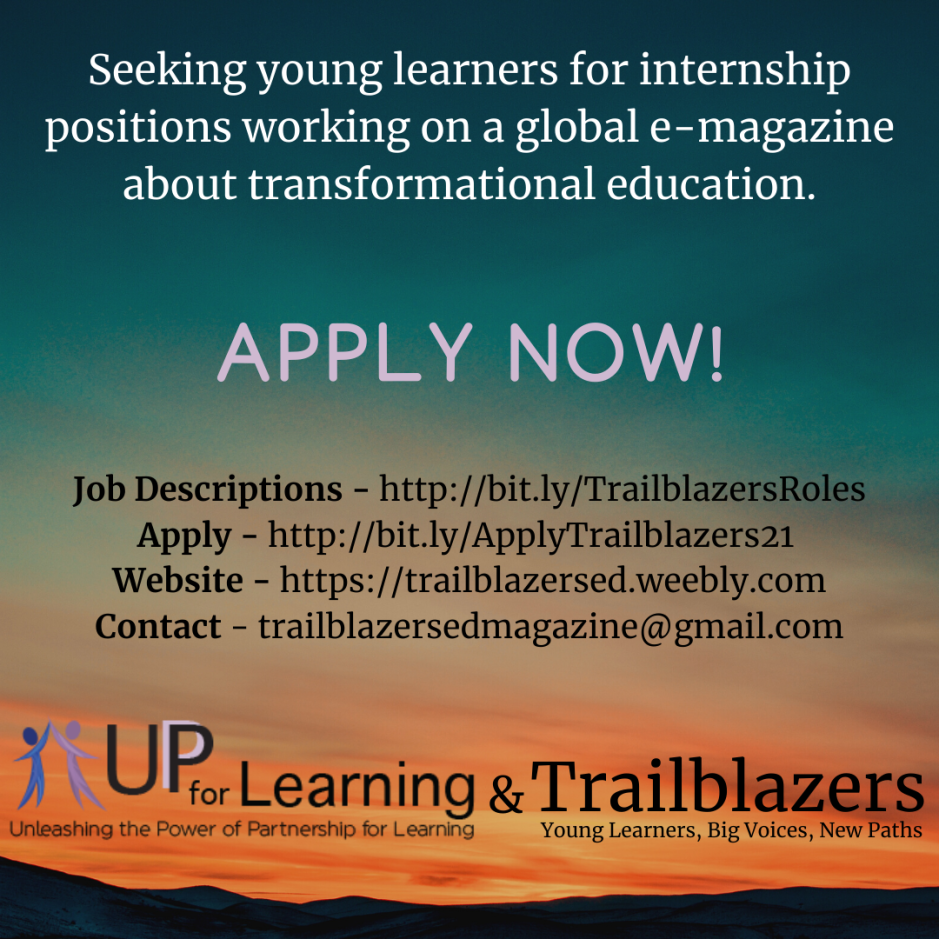2020 has been a whirlwind of disruption and new norms, and the same goes for Trailblazers, the student driven magazine about transformative education that I co-founded four and a half years ago.
While disruption can be messy and frustrating at times, it also comes new opportunities for growth and development. With this in mind I am excited to announce that Trailblazers has officially partnered with the Vermont based education non-profit UP for Learning to enhance the sustainability and continued advancement of our organization.
Over the years we have been very successful with Trailblazers, having published 7 issues now and gaining global attention for our work. However, with Abigail and I now close to graduating college, we believe we are getting to a point wherein the next year or so it would no longer make sense for us to be running the magazine. Despite this, we also recognize that Trailblazers has proven to be a valuable resource for amplifying student voices in education and we don’t want to see it die. Thus, we decided to seek out a non-profit interested in partnering with Trailblazers to help ensure the sustainability of the magazine after we move into more of a “senior consultant” role rather than our current managerial roles.
UP for Learning’s mission is to empower youth and adults to reimagine and transform education together. They believe educational equity is a basic human right and every youth and adult partner should be known, valued, and respected as co-creators of change and impact. These concepts resonated deeply with the Trailblazers team and based on my personal interactions with UP for Learning members, recommendations from the education community, and additional research we decided this would be a mutually beneficial partnership that we are excited to explore and develop.
With this new strategic direction, we are now looking nationally for young learners interested in joining our production team as an UP for Learning intern to bring this world renown magazine to life twice a year.
We are looking for responsible, creative learners who are strong communicators and have an interest in forwarding the Education Transformation Movement. As a team member you would be expected to attend monthly Zoom meetings, communicate progress bi-weekly via text or email, and fulfill your specific responsibilities required to publish each issue of the magazine.
The roles we seek to fill are: Managing Editor, Outreach Associate, Communications Associate, Lead Graphic Designer, and Director of Media. Attached is the official job description and application form, please share with any young learners that you think would be a good fit!
Feel free to also contact trailblazersedmagazine@gmail.com with any questions.
Looking forward to this next chapter of our Trailblazers story!















